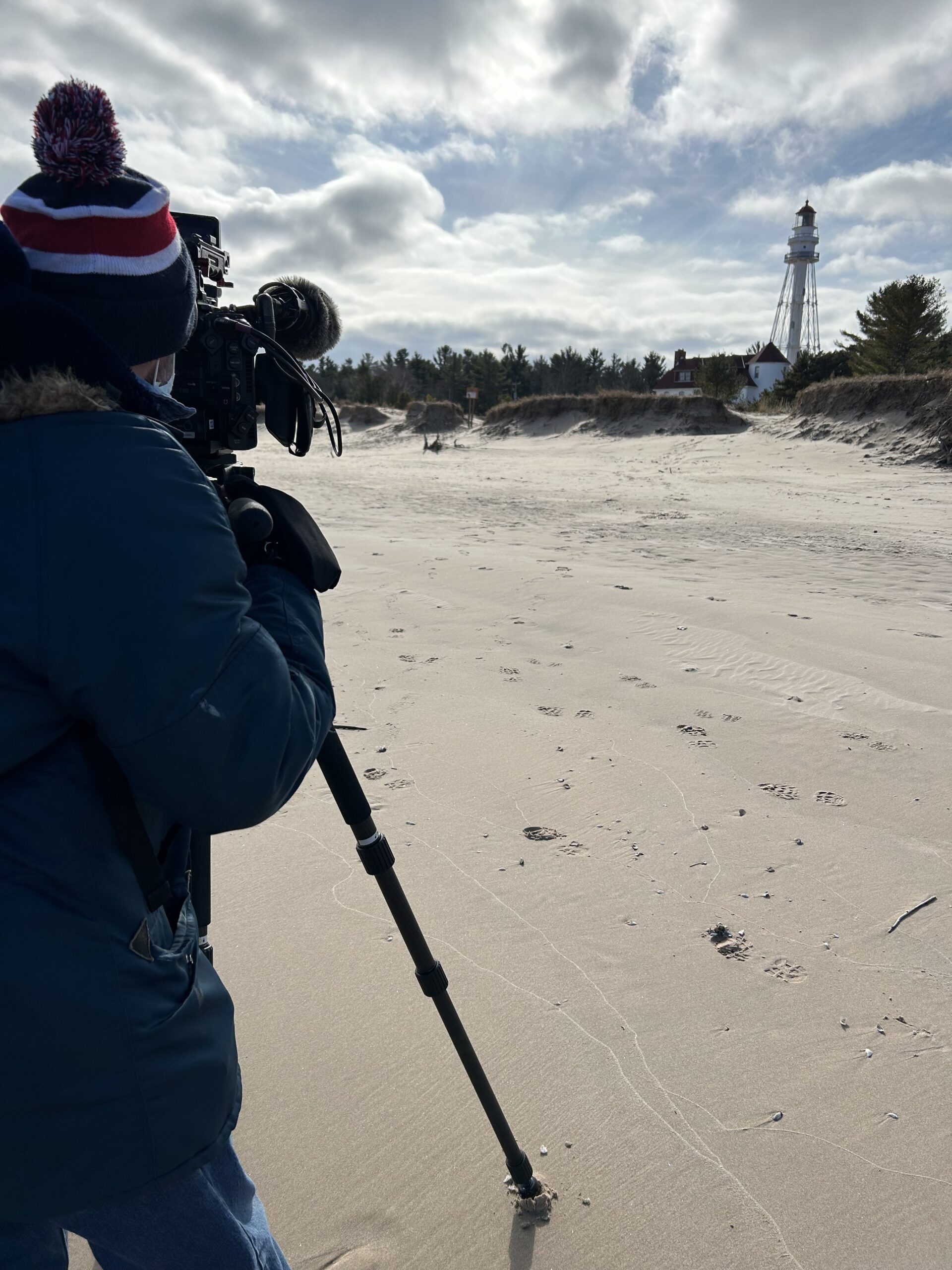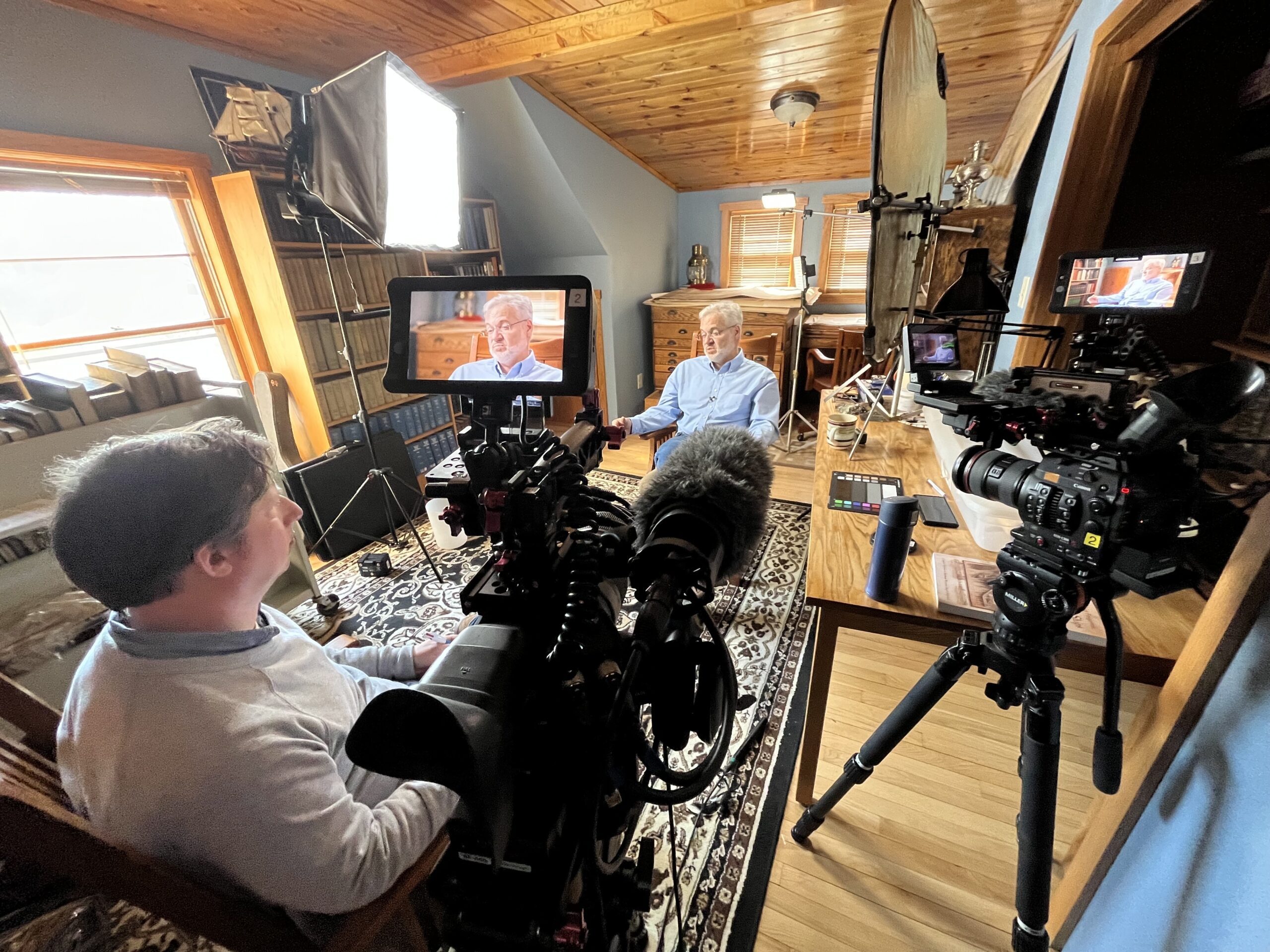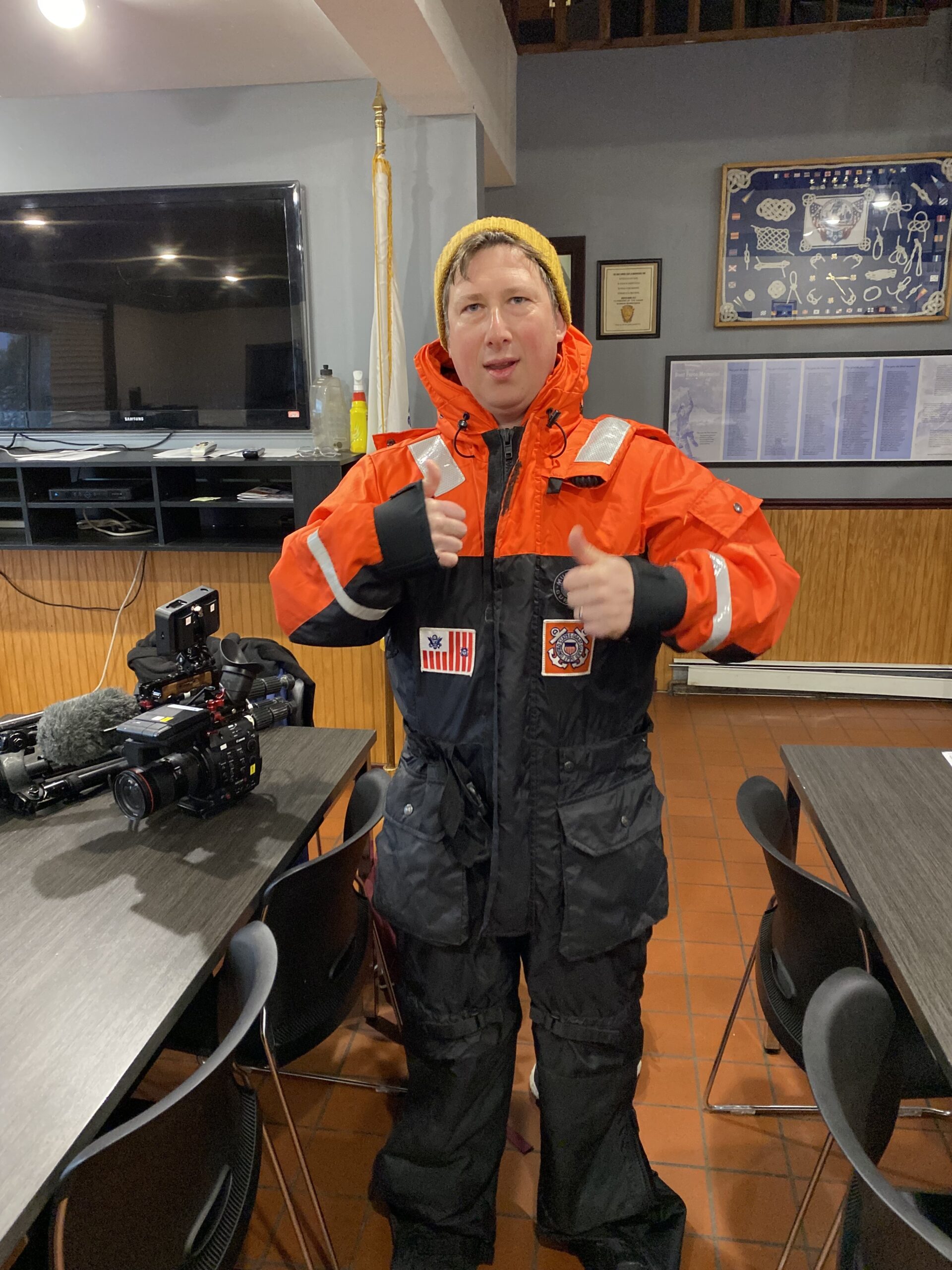‘Wisconsin Lighthouses’ premieres Dec. 2 – read a Q&A with producer Jeff Pfeiffer
Since the mid-19th century, our state's lighthouses have guided generations of mariners to safe harbors.
11/11/24
Since the mid-19th century, our state's lighthouses have guided generations of mariners to safe harbors.
11/11/24
Since the mid-19th century, our state’s lighthouses have guided generations of mariners to safe harbors. An all-new documentary, Wisconsin Lighthouses premieres 7 p.m. Monday, Dec. 2 on PBS Wisconsin and illuminates the power and appeal of these iconic structures that decorate the state’s shores.
Join us for a voyage exploring our state’s scenic wonders and celebrate these beacons of Wisconsin’s maritime legacy by exploring the history, idyllic settings, unique architecture and the light they shine on a bygone era.
PBS Wisconsin spoke with producer Jeff Pfeiffer in anticipation of the program’s premiere.
PBS Wisconsin: How did you become involved with Wisconsin Lighthouses?
Jeff Pfeiffer: A former longtime PBS Wisconsin employee and avid mariner named Don Sanford said we should do a show about lighthouses. When I was hired by PBS Wisconsin in 2022, we had just done Shipwrecks!, and it was one of the more popular series here. We also have the Wisconsin’s Scenic Treasures series, which has been very successful. [Wisconsin Lighthouses] seemed like a natural combination.
[Sanford] retired, and he left with us a wealth of really great material, including a book by Ken and Barb Wardius, who wrote “Wisconsin Lighthouses: A Photographic and Historical Guide,” published by the Wisconsin Historical Society Press. It features beautiful color photographs and everything from historical facts to how to visit. So that was the jumping off point for me.

PBS Wisconsin: With a project of this size and depth, you had to form plenty of impactful community partnerships throughout the state to help you capture the in-depth stories behind those lighthouses. Could you tell us how some of those partnerships came about?
Pfeiffer: There are just so many different locations and different entities that own and maintain these lighthouses. Many of these lighthouses are managed by volunteer groups who put in countless hours of their own time to restore and maintain them as museums, and to showcase the importance of lighthouses in our state.
It was also important knowing that we had a responsibility to make sure we kept their homes nice. Other small groups and community members were engaged as well – so it all comes back to the community.
We worked pretty closely with the Door County Maritime Museum because they are the custodians of the Cana Island Lighthouse. We knew that Cana Island was going to be a focal point of the show because it is a favorite. It is so classic and iconic.

PBS Wisconsin: Once you arrive at a location, what are the first steps you take to start the process?
Pfeiffer: If I had the time, which I did in the early days of the show, I would get out there and look around. I’d try to get a sense of what it looks like and evaluate in my mind, “These are the challenges. This is how I’m going to get up these stairs.”
Sometimes you don’t have that luxury. This was especially true on the Apostle Islands. I would rely on the people who live or work there to tell me everything that they possibly could, but you never really know until you get there.

PBS Wisconsin: What were some of the other logistical challenges presented when shooting on location?
Pfeiffer: I knew when we started the show, we weren’t going to have a problem getting to places like Kenosha and Milwaukee. Some of those lighthouses, you can just drive right up to them and park in the parking lot. Other lighthouses are in the middle of Lake Superior, and the only way you’re going to get to them is via boat. We needed to rely on partnerships we formed in the communities.
At times, we were helped by the National Park Service. At times, we got help from the DNR. At times, we received help from private individuals who were just happy to lend us their private boat as long as we had a competent captain. One time, we contracted with an Apostle Islands water taxi service.
Now you’re thinking, “Okay, well I’ve got the boat, but now we still have to haul our equipment over there.” We have to make sure that we have enough stuff, but not too much that we are loading ourselves down. I certainly had never done that kind of thing before. I also didn’t realize how remote the Apostle Islands were going to be.
While visiting the Apostle Islands, we decided to camp out on Sand Island. Not only did we have to bring all of our equipment, but we had to bring enough camping items and food to live for a day. That was all part of the adventure, part of the fun. It was certainly a logistical challenge.
PBS Wisconsin: What surprised you the most when producing Wisconsin Lighthouses?
Pfeiffer: What surprised me the most about this project was the variety and the amount of lighthouses. The stories behind them were really surprising as well.
When you look at the Apostle Islands, for example, you can get a sense of what life was like 150 years ago. When you look at a place like Port Washington Lighthouse, for example, the town of Port Washington has built up around that lighthouse. But that lighthouse is a window into the past.
And that’s why going back to these places is valuable, to get a sense of what it was like being a lighthouse keeper. It was a lot of work. The idea that comes back to me is that of sacrifice. You put the lives of the mariners and the people on that lake ahead of your own life. That conflict of the human heart really resonates with me as a storyteller.
PBS Wisconsin: What do you want the audience and the viewers to come away with after watching your film?
Pfeiffer: These are wonderful treasures that tell the story of how we got to where we are today. I want people to walk away with a deeper appreciation of not only the lighthouses, but also an appreciation of the sacrifices that the keepers and their families made. It’s really remarkable. If there is a lighthouse near you, go visit it!
I would love to get your thoughts, suggestions, and questions in the comments below. Thanks for sharing!
Mark
Yay Lighthouses! Excited for the documentary.
Annette J Gross
I have visited a light house and am looking forward to seeing the show.